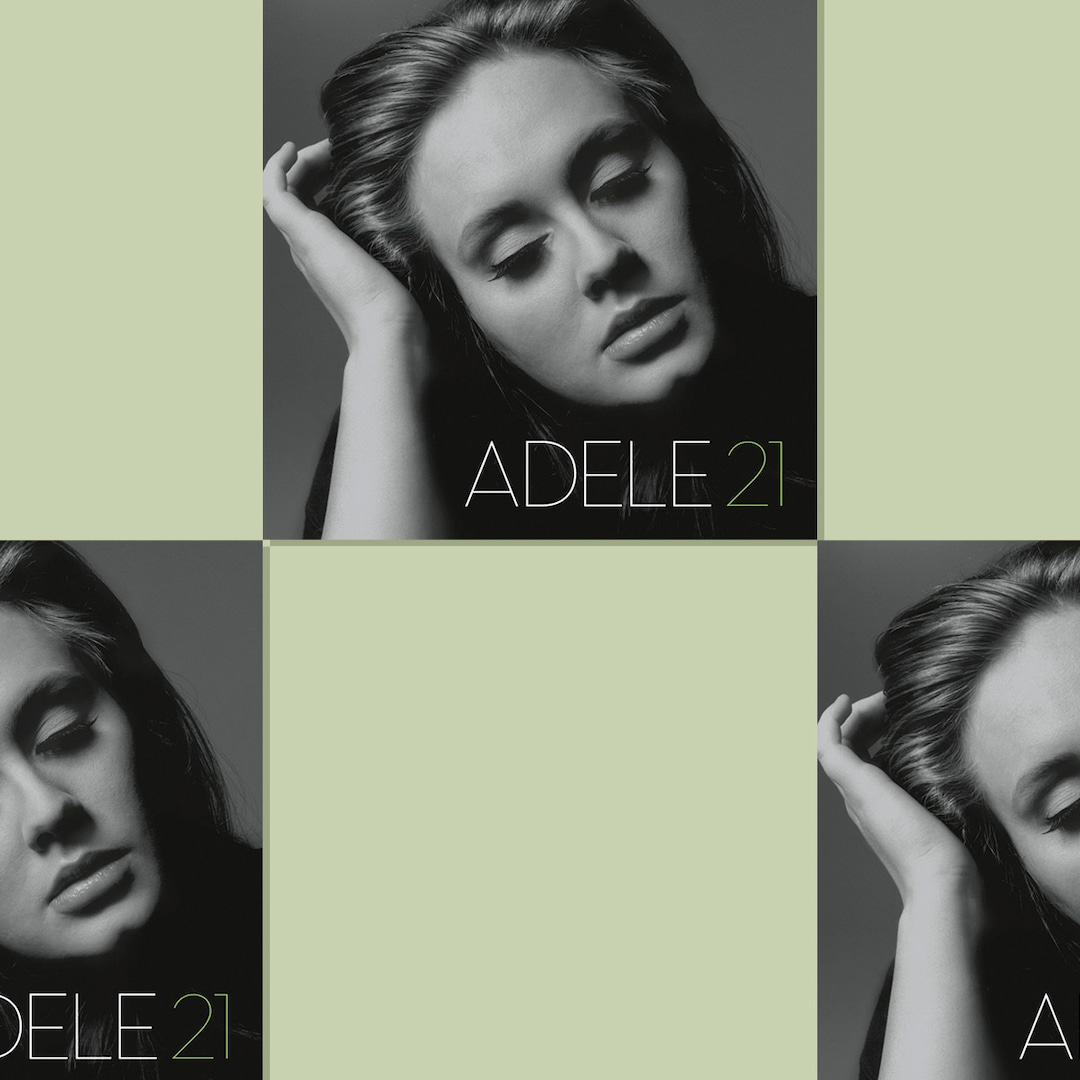Chinua Achebe famously argued that ‘Artwork shouldn’t be meant to place individuals down. In that case, then artwork would in the end discredit itself’[1] and it’s exactly this ‘discredit’ that Black British autobiographical accounts goal to determine via their numerous challenges to the notions of Blackness. Inherently imbued with an company, autobiographical accounts clearly current the voices that might be silenced in different types of literature because of their standing as a minority. For the aim of this essay Blackness will probably be outlined because the ‘property or high quality of being black in color’[2] and the autobiography of Olaudah Equiano will probably be used to know its foundations. As well as, Jackie Kay’s novel Trumpet will probably be analysed to discover extra up to date notions. As a novel revealed in in the direction of the top of the 20th century, Kay’s work offers the chronological antithesis to Equiano’s narrative which serves as one of many earliest accounts.
As one of many earliest autobiographical accounts charting the Black British expertise, Equiano’s narrative serves as a key start line to the introduction and understanding of the preconceived foundations of Blackness. While this reality has resulted in a lot scholarly evaluation of the narrative, it may be argued that an important facet in understanding the idea of Blackness is discovered within the opening chapter. Starting his narrative with an outline of his early childhood in Eboe, Equiano presents an outline of African life that’s uniquely freed from a Eurocentric lens. By means of a methodical itemizing of conventional tradition, starting from marriage to tribal warfare, readers are offered with a concise however detailed description of life earlier than his enslavement.
With Equiano’s account, readers are offered with an unexploited type of id and subsequently, may be considered a transforming of his Blackness exterior of the mandates of the colonial British society he is part of in his maturity. Reworking notions of British Blackness Equiano’s particular presentation of tradition adheres to the definitions of a civilised society, offering a direct problem to social rhetoric equivalent to that from Scottish thinker David Hume who recommended ‘there scarcely ever was a civilised nation of that complexion[3]. As a member of the higher echelons of British society, Hume’s quote not solely offers an perception into the truth that Blackness traditionally had been outlined by the proponents of the empire, however the point out of ‘complexion’ introduces the racialisation of society.
Strengthening the inference that Equiano’s writing itself builds a way of Blackness, is his particular selection to debate Africa at the start of his narrative. Because it paperwork Equiano’s life earlier than slavery, its placement at the start of his narrative it’s uniquely imbued with a freedom exterior of the social white acutely aware of which traces may be discovered all through the remainder of the textual content. While it could possibly be argued that that is because of the narratives chronological type, when examined alongside the attention and company of his penning this appears relatively reductive. As a substitute it could possibly be inferred that the dialogue of Eboe early in his work capabilities as a marker for his reader in the direction of an intent to redefine his Blackness trough his personal recollections.
Exposing the truth that Blackness, within the sense with which it’s thought of immediately, is a direct product of the heavy racialisation that gave rise to slavery and the tried erasure of any African id. A actuality accepted by Equiano himself who states that while he ‘didn’t take into account himself European he believed himself to be a ‘favorite of heaven’[4], compared to the struggling to his countrymen, and thus immediately handle the company of society wherein heaven is barely afforded to those that are racially white. By means of his direct acknowledgement of racial inequalities readers are inspired to know that Blackness originated as an summary type of acutely aware id that traditionally labored as a way of each the social separation on the premise of race but additionally a justification for world colonialism. Due to this fact, by taking a look at what’s extensively considered a key basis of Black literature in Britain, it may be recommended that historic autobiographies documenting Blackness goal to problem Blackness by reclaiming the unique individuality of African id. Additional including to this inference is the truth that writers equivalent to Frantz Fanon emphasising three centuries later that his phrases would characterize the Antillean expertise and that it might not be capable to cowl the whole lot of what ones Blackness would represent[5].
Inferring from Fanon’s feedback that traditionally the time period of Blackness has been utilised within the erasure and oppression of the peoples possessing it, Equiano’s particular descriptions of Eboe undermine the idea and change into a daring problem to the powers of society. Recreating an in depth picture of his Africa, from the ‘3400 miles from Senegal to Angola’, to the ‘Kingdom of Abyssinia close to 1500 miles from its starting’[6], Equiano describes the pure wealth of his nation and thus reclaims the grandeur of Eboe in a means that frees it from Western commercialisation[7]. While the financial capital of Africa had been properly famous, turning into the first motive behind Western colonialism, Equiano’s description away from concepts of financial revenue additional expands the picture of the continent away from the definitions of a Eurocentric lens.
Moreover, with the assertion of Eboe’s pure wealth, as a way of addressing and inferring an opposition to the working relation between Europe and Africa, Equiano presents to his readers an unbiased narrative company with the means to subvert social expectation. Showcasing an expanse of information in conjunction to the attention of social racialisation, Equiano from the start of his narrative responds to racist Western works and makes use of himself as proof to distinction prevalent racial ideology. Lucid in his speech, Equiano’s transnational data presents in opposition to the traditionally up to date accounts of the time which, beneath the guise of established social authorities equivalent to science, philosophy, and faith propelled concepts of racial ‘primitivity’. A recent and considerably disciple of Hume[8], primitivity of the races discovered its foundations in works supplied by the revered German author and thinker Immanuel Kant, who via a hierarchal rating recommended a ‘scientific’ order to society. On the false declare of being a ‘pure science’, Kant positioned the Black diaspora third, above the Indigenous peoples on the bottom that they’re unable to be educated and because of this in want of possession[9]. Kant reduces these in possession of Blackness to only the physicality of the physique by dismissing their mental potential and as such demonstrates the dehumanisation that Equiano immediately challenges in his opening chapter. The works of each Kant and Hume current the ‘social capital’ of Blackness being simply the bodily physique offers proof of the traditionally held idea that Black id solely begun with slavery. The continued relationship between Black id and the trauma of slavery additional sheds mild on the truth that the personability of Blackness that had begun to be reclaimed by Equiano and people like Fanon who adopted after, have continued to battle the established Western authorities possess extra of a extra social affect.
While the battle to redefine Blackness away from the definitions of western authority could possibly be thought of an inevitable response towards the overt racism of historic society, the evaluation of latest autobiographies presents a continuation of this strategy of transformation. Though not a strict autobiography, Jackie Kay’s Trumpet attracts a lot of its content material from its authors life[10] and explores the boundaries of the Black British diasporic id to such element that its evaluation proves worthwhile in investigating the notions of Blackness in a recent context.
Specifically Kay’s novel presents a continuation of the problem that the possession of Blackness dehumanises the person into social property. Following the aftermath of the revelation that jazz musician Joss Moody had been assigned feminine gender at start, the novel explores the general public collapse and rewriting of his id. The intrusive and disregarding nature of western authority is overtly offered within the novel via the characterisation of journalist Sophie Stones. Itemizing a seven-stage plan[11] via which she is going to systematically acquire entry to the non-public life and household of Joss Moody, Stones intentions are clearly expressed within the narrative to not solely convey her intrusive however scientific nature in coping with the reminiscence of a deceased Black man.
Charting a quest to acquire gadgets from his start certificates to non-public images and interviews of these near him, Stones presents a disregard for the life Moody had created for himself even when inspired by his son to not ‘trouble with this him/her… Simply say him’[12], her preliminary reluctance turns into an act of direct defiance and transforms her disregard into disrespect. This incident types a key second within the novel because it overtly shows the dehumanisation of Joss Moody, dissecting his life beneath the guise of discovering the ‘fact’, Moody’s private fact, which has already been ignored by the revelation of his gender, is now threatened by full erasure. Believing she has the fitting to entry all features of his life, Stones calculated analysis would have the facility to exchange the ‘details’ of Moody’s life and erase Joss Moody to put in instead Josephine Moore. Nonetheless, while it could possibly be argued that the insensitivity displayed by Stones shouldn’t be distinctive however relatively a requirement of her job, this judgement turns into reductive when thought of alongside Stones remarks concerning Moody’s skilled profession and that it’s at this level that Kay decides to maneuver the narrative to Scotland.
The change in location allocates an significance to the second within the novel, Kay makes use of it to stress the oppressive high quality Stone’s presents to not solely Joss but additionally Colman. Delving into the complexities and variations of Blackness inside Britain and as defined by Kay herself ‘Scotland extra clearly topics racial minorities to a strategy of double colonisation’[13], and it’s exactly this that’s mirrored throughout the narrative as via the combining of Stone’s and Scotland. As a world marker of Black expertise, the character of Joss Moody suggests the chance that the reconciliation of Blackness alongside Scottish id could possibly be achieved however this concept is rapidly damaged by the infiltration of Stone’s and her actions are clearly offered as an excessive of society not merely the product of her trade.
Moreover, the usage of Jazz as a medium of self-expression and efficiency additional offers an fascinating comparability to the idea that social views of gender are what are actually performative however Blackness as an idea is a private fact. A transgender male, the revelation of Moody’s secret is offered as a violation that devastates each his household and his popularity as a revered musician. With the characters throughout the novel drawing consideration to the physique of Moody as a posed to his legacy, Kay presents a contemporary adaption of the traditionally held notion that the physicality of Black our bodies nonetheless overcome their contributions to social tradition.
Describing the bandages as ‘sticky and sweaty…as if she was eradicating pores and skin’[14] , the intrusive description the autopsy not solely presents as a transparent violation of Moody reveals the morbid curiosity within the black physique. Regardless of being centuries aside, Kay’s novel and Equiano’s narrative each present British Blackness to be intrinsically linked to the physicality of the physique and with the examination the id of Joss Moody is destroyed and his existence successfully erasure. A course of perpetuated by the medias hounding curiosity the lack of Moody’s id additionally leads to the lack of his work which, within the public eye now not has the embodiment of an writer and subsequently is culturally devalued.
Along with this it may be recommended that this intrinsic linking of the gendered physique to the performative nature of Moody’s work is used to show the truth {that a} gendered id is a performative facet that a lot of society adheres to and contrasts the inherent Blackness embodied by Moody and his son Colman. Having lived life as a person, Moody’s success in life evidences that the organic intercourse and social gender should not mutually unique with the latter being a efficiency of what’s thought of masculine or female. That is contrasted by Kay who presents Blackness as an immutable facet of life via each the therapy of Joss’ and Colman’s response. As described by Matt Richardson, Joss is ‘now not the exception’[15] and thus open to the racial prejudice of British society, one thing later mirrored by Colman who makes an attempt to reclaim his Blackness via the bias thought of fetishizing of the Black physique. By means of this the silencing of what constitutes Blackness is uncovered and along with the setting of Scotland the novel ‘Trumpet’ considerably settles on a actuality that while British Blackness is subjected to a social oppression that means it to be a fragile idea, Blackness – mirroring the emotions of Equiano- is in reality a private type of consciousness that may solely be claimed by those who possess it. Lastly discovering a decision with Colman accepting his father as a route again to reclaiming of his personal masculinity and Blackness.
From the examinations of historic and up to date autobiographies the definitions pertaining to the concept of Blackness have been continuously challenged and revised by Black authors. By means of the presentation of their very own life narratives, writers in conjunction to Equiano and Kay – who’ve fashioned the premise of study on this essay – have exemplified themselves as a way to progress the definition past the formations of the allotted by the colonial society. While Kay’s novel presents a number of the progressions which were made, its means to attract comparisons to Equiano’s historic narrative additionally suggests the lengths of revision that also must happen.
References
Equiano, Olaudah. The Lifetime of Olaudah Equiano or Gustavus Vassa the African, (New York: Longman African Writers, 1994).
Fanon, Frantz. Black Pores and skin White Masks, (New York: Grove Press INC, 1967).
Holago, Miasol Equibar. “Studying the Physique Racial in Black Canadian/ Black Scottish Nonfiction: Dorothy Mills Proctor and Jackie Kay” African American Assessment, Vol. 51 no.3, 2018.
https://plato.stanford.edu/entries/kant-hume-morality/ (final accessed 25/04/2020).
https://www.blackhistorymonth.org.uk/article/part/history-of-slavery/africa-before-transatlantic-enslavement/ (final accessed 25/04/2020).
https://www.cam.ac.uk/analysis/information/price-of-britains-slave-trade-revealed (final accessed 08/12/2019).
https://www.dictionary.com/browse/blackness?s=t (final accessed 12/05/2020).
https://www.theguardian.com/books/2003/feb/22/classics.chinuaachebe (final accessed 12/05/2020).
Jaggi Maya, Dyer Richard, ‘Interview: Jackie Kay in Dialog to Maya Jaggi and Richard Dyer’, Wasafiri, 14:29 (July 2008).
Kay Jackie. Trumpet, (London: Picador, 1998).
Kleingeld, Pauline. ‘Kant’s Second Ideas on Race’, The Philosophical Quarterly, 57, 229 (2007).
Richardson, Mat. ‘My Father didn’t have a Dick: social loss of life and Jackie Kay’s Trumpet’, GLQ, 18, (2012).
Notes
[1] Chinua Achebe, 2003, Out of Africa, from Guardian Limitless https://www.theguardian.com/books/2003/feb/22/classics.chinuaachebe [last accessed 12/05/2020]
[2] ‘Blackness’ in https://www.dictionary.com/browse/blackness?s=t [last accessed 12/05/2020]
[3] https://www.blackhistorymonth.org.uk/article/part/history-of-slavery/africa-before-transatlantic-enslavement/ [last accessed 25/04/2020]
[4] Olaudah Equiano, The Lifetime of Olaudah Equiano, (New York: Longman African Writers, 1994) p.1
[5] Frantz, Fanon, Black Pores and skin White Masks, (New York: Grove Press INC, 1967) p.109-39
[6] Olaudah Equiano, The Lifetime of Olaudah Equiano or Gustavus Vassa the African, (New York: Longman African Writers, 1994) p.2
[7] https://www.cam.ac.uk/analysis/information/price-of-britains-slave-trade-revealed final accessed 08/12/2019
[8] https://plato.stanford.edu/entries/kant-hume-morality/ [last accessed 25/04/2020]
[9] Pauline, Kleingeld. ‘Kant’s Second Ideas on Race’, The Philosophical Quarterly, 57, 229 (2007), pp.573-92
[10] Maya Jaggi, Richard Dyer, ‘Interview: Jackie Kay in Dialog to Maya Jaggi and Richard Dyer’, Wasafiri, 14:29 (July 2008), 53-61.
[11] Jackie Kay, Trumpet, (London, Picador, 1998) p. 141-42.
[12] Jackie Kay, Trumpet, (London, Picador, 1998) p. 142.
[13] Miasol Equibar Holago. “Studying the Physique Racial in Black Canadian/ Black Scottish Nonfiction: Dorothy Mills Proctor and Jackie Kay” African American Assessment, Vol. 51 no.3, 2018, p. 167-179.
[14] Jackie Kay, Trumpet, (London: Picador, 1998) p.
[15] Matt, Richardson. ‘My Father didn’t have a Dick: social loss of life and Jackie Kay’s Trumpet’, GLQ, 18, (2012) pp.361-379
Written at: Goldsmiths College of London
Written for: Joan Anim-Addo
Date written: Could 2020
Additional Studying on E-Worldwide Relations











